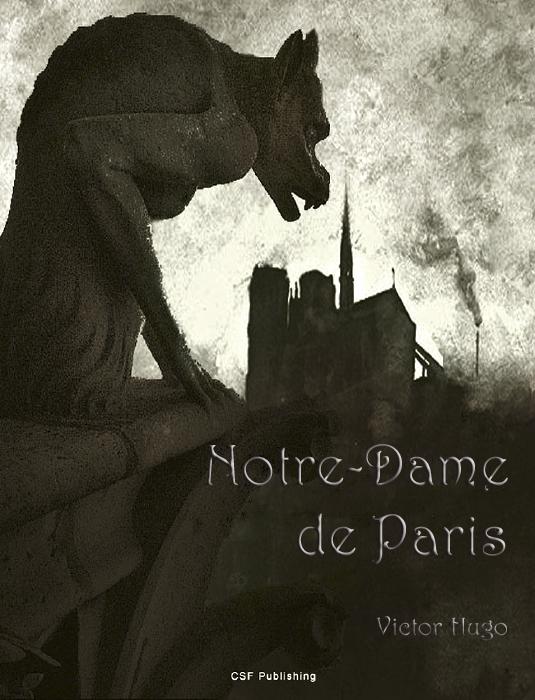Friday, February 1, 2013
NOTRE-DAME DE PARIS by VICTOR HUGO
This is a morality tale of what happens when Love is consumed by Desire and Passions which take it outside the bounds and ends up killing it and all those around.
The English translation that first came out introduced the misleading title of "Hunchback" into the English speaking world when the more appropriate title of the original focuses on the play between Our-Lady and the Building of Notre-Dame which was in a state of abject neglected disrepair at the time of the Novel.The resulting publication of the Novel helped cement a campaign for the proper restorative maintenance of the building which we can all enjoy today.
The work itself was written by a young Victor not even thirty years old in a tight deadline of only five months.Like Dostoyevsky years later with the manuscript of "The Idiot" , high pressure working to a deadline and barely staving of debts meant Victor had to work from memory as the only drafts had been given to his increasingly impatient publishing commissioner.This has resulted in some giving unfair criticism about some of the alleged unevenness of the published Book , this is unreasonable giving the constraints Victor was under and what should be observed in this unique revolutionary grand narrative Novel is the flow, drama, comedy and ever-maturing genius that came out of so diminishing of deeply trying circumstances in what was always going to be a forced venture without any opportunity to review , redraft or work over already submitting installments.
To this end is the development of Claude Frollo , all his loves are of great merit , passionately felt , virtuously honoured with great delicacy and sacrifice , yet when even one aspect of his love yields from caring , compassionate bonds to a possessive desire driven quest , all his love is destroyed , all his loves suffer enormously whilst he morally ossifies and degenerates into a mutated fiend before the readers eyes.One wonders if the study of the corrosive effects of love when it leads to consumptive destruction via desire when it crosses the bonds of caring into obsession, moral decline and madness that bends the senses of Humanity that should be the bedrock of genuine love itself , given time , would have been developed at less frantic pace.
Many has misconstrued his detailed and nuances descriptions of the architecture as shabby attempts at fillers to flesh out the material.A better understanding would be the placing of the language of the great works of architecture being seen as a continuum from the early age of the Greeks through Romans to the Arts , Culture and crafts of France at a time in history when there was a great debate between aspects to retain and refresh from History or those to demolish in the name of progressive modernity from the days in the aftermath of the making of the Republic.Though his attitude to Religion can be summed up as "Clergy married to Nobility" he regarded landmarks such as Notre-Dame as part of the heritage of the People of France , well worth preserving for posterity.
A metaphor for his attitude is the equating the written Arts to the architecture of stone as a marriage that will cement the best elements of the past with the present.In the novel we have a manichean conflict in which the fear is the printing press ( ultimately beholden to state hands) will destroy the beauty and poetic freedom of architecture , and ultimately the bonds holding People together.Whilst the written word can be suppressed at ant time , solid architecture would withstand brief historical flirtations.Victor is looking for values not to be subscribes in constitutions or pieces of easily disposable paper , but wants them etched in solid stone symbols and values architecture that will stand up for all timeThis article gives an indication of some of the themes.
He saw the restoration of Notre-Dame , from the neglect of his time , as an extension of the evolution of classical values meshing into the best technical modern thinking of the past and present entering into the Hearts and Minds of Man.
Subscribe to:
Post Comments (Atom)

No comments:
Post a Comment